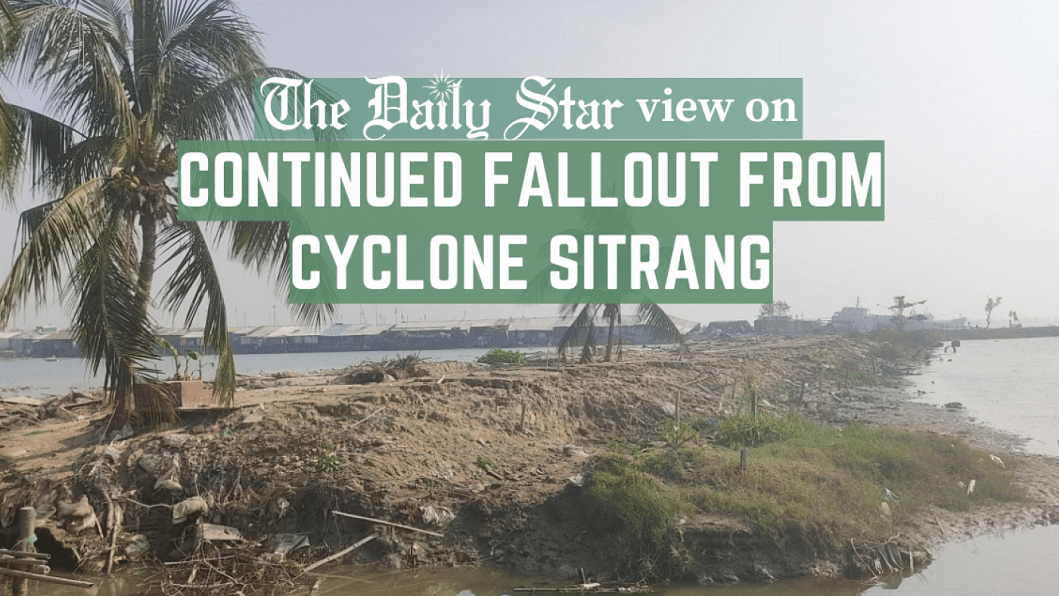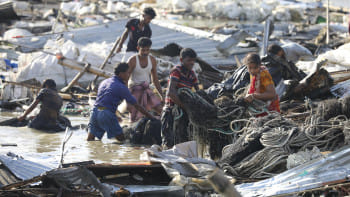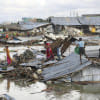Why are Sitrang’s victims still waiting for relief and rehabilitation?

We are dismayed to know about the helplessness of around 150 families of a fishing community who have been left homeless and destitute by Cyclone Sitrang in late October. According to accounts given by some of the victims living near the embankment in Chattogram's Patenga, these people have been living in makeshift shanties with little food and safe drinking water ever since they took shelter from the cyclone. Many have to sleep under the open sky. There are no toilets either. They are forced to use dirty water for their daily needs. Apart from the initial relief of dry food given soon after the cyclone, they have not received any other aid.
This is quite shocking considering our fairly unblemished track record of rapid response during natural disasters. Why is government relief not being given to these people who are clearly in desperate conditions? According to a report by this paper, the district's relief and rehabilitation officer has claimed that they are still waiting for a list of affected people from the local councillor, while the councillor is claiming to have already submitted it. If that is so, why this agonising wait for relief? Surely bureaucratic tangles cannot come in the way of saving lives? The plight of these people, however, didn't start only after the cyclone, although it certainly caused greater suffering. Most of them are victims of climate change and come from coastal regions such as Hatia and Sandwip islands where river erosion or storms left them landless and homeless. Some families have been living near the embankment for 25 years, and have been constantly struggling to survive. The latest cyclone only highlighted how vulnerable this community still is to natural disaster. It is obvious that rehabilitating them somewhere else is the only solution.
According to one resident quoted by our report, after a survey done in 2008, they received cards and were assured of rehabilitation, but their cards have been washed away by Sitrang. If this is true, it would mean that these people have been waiting for 14 years in vain. We urge the government to ensure that all efforts are taken by the local administration and relevant relief officials to address the immediate needs of these people, such as food, shelter and sanitation. But long-term plans have to be initiated right now, so that these families can be transferred to an area where they will not face the imminent danger of erosion or other natural disasters.
In fact, the government should focus its rehabilitation efforts in other areas too, where thousands of people live in subhuman conditions after losing all their possessions and homes to natural calamities. With a rising number of such climate refugees, Bangladesh must have a comprehensive plan to identify them and help them rebuild their lives by providing immediate financial support, proper shelter and opportunities to earn a decent living. For the fishing community near the Akmal Ali Ghat embankment, the need for this support is urgent.


 For all latest news, follow The Daily Star's Google News channel.
For all latest news, follow The Daily Star's Google News channel. 








Comments